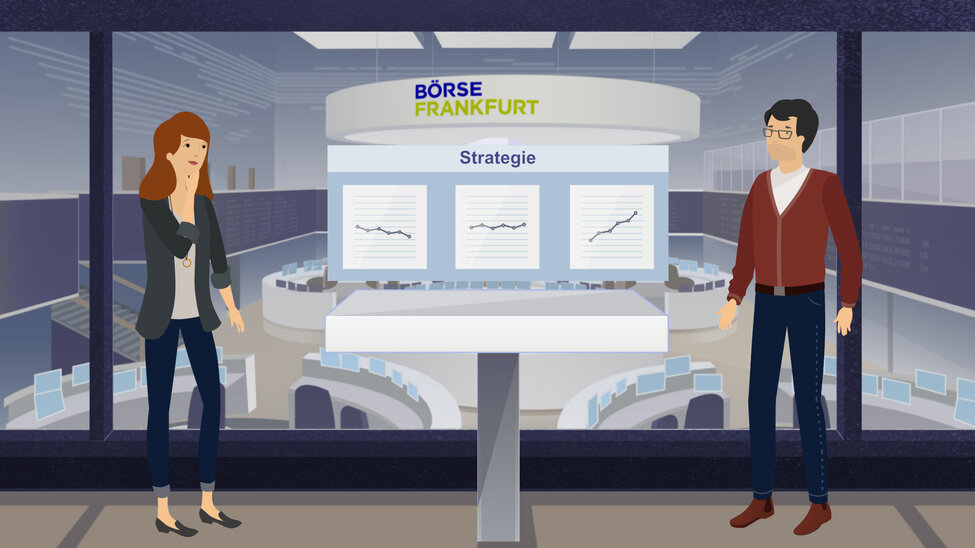Certificates - Diverse opportunities with structure

Certificates offer investment opportunities for every taste, as they can be used to implement a wide range of strategies.
Which strategy to choose?
Some certificates lure with bonuses and safety buffers, others offer guarantees or grant discounts on shares. It is worthwhile for investors to look into this asset class. Perhaps you will find the right investment for your own investment objectives. Certificates are particularly suitable for exotic markets, hard-to-reach asset classes or special trend themes. More complex forms, often referred to as structured products, offer opportunities in sideways markets without strong price fluctuations.
Like bonds, certificates are bonds issued by an issuer, in this case a bank. It securitizes the buyers of the certificate to participate in the price development of an underlying asset. This underlying asset is often a stock, an index or a specially composed basket of stocks. But certificates on exchange rates, foreign exchange, interest rates or commodities are also offered.
Underlying for certificates
Security and risk: Certificates are suitable for all investor types Many certificates track the movements of their underlying asset 1:1. They can also replicate them in the opposite direction. Thus, the price of the certificate can rise if the underlying index falls. There is also a whole range of certificates that track price movements disproportionately or disproportionately. This is called leverage and the securities leverage certificates. Leverage increases yield opportunities, but also increases risk.
Some certificates are equipped with safety thresholds or maximum yields that affect the risk-reward profile and the price development of the certificate. Depending on the type of certificate, it is aimed at security-oriented or risk-happy investors.
How to find your suitable certificate
First of all, you should consider which market, index or strategy you would like to invest in. Then check whether a corresponding certificate exists. The overview of certificate trading on the Frankfurt Stock Exchange can be found at boerse-frankfurt.de. Also on-line Broker and other financial portals make appropriate search assistance available for this purpose.
Usually there are several providers with similarly structured certificates. Pay special attention therefore to the costs, above all to the difference between buying and selling course (Spread). Also inform yourself about the creditworthiness of the issuer.
The most important features of certificates
As a rule, there are no or only low issue surcharges and management fees when buying or selling. Even complex custody account structures can be cost-effectively reconstructed by small purchase ratios with small amounts. Certificates can be traded continuously on each trading day. The issuers provide permanently binding buying and selling prices. With some certificates, you as an investor can also benefit from sideways-tending markets or falling prices. Duration: Best unlimited Certificates usually have a fixed term, usually several years. However, there are now a number of certificates that, similar to a perpetual bond, have no fixed redemption date. The advantage: Long-term investors save themselves the effort and costs of acquiring follow-up certificates.
The Subscription Ratio
A single certificate, such as an index certificate on the DAX, would of course be very expensive if it were to track the full index at a ratio of 1:1. Therefore, the issuer often chooses smaller subscription ratios such as 1 to 10 or 1 to 100.
For example, an index certificate tracks the DAX at a ratio of 1:100. If the DAX is listed at 10,000 points, the security has a value of 100 euros. Investors can therefore participate in the price performance of the entire index even with small amounts and have transparency about the value of their investment at all times.
The spread decides
As a rule, the issuer of a certificate permanently issues buy and sell quotes, the so-called bid and ask prices. This allows the shares to be bought and sold at any time at the current market price. The spread, i.e. the spread between the bid and ask price, is an important cost factor for the investor.
Another example: The DAX stands at 10,000 points and you would like to buy an index certificate with a subscription ratio of 1 to 100. The issuer offers the certificate for about 100 euros for sale, the buyback offer is 99.96 euros at the same time. The spread is thus 4 cents or, in relative terms: 0.04 percent of the purchase price. The price of the certificate must therefore first rise by these 4 cents before it can be sold again at cost price.
If different certificates with the same features are available for selection, i.e. on the same underlying with a similar term and subscription ratio, you should consider the relative trading spread between the bid and ask prices.
The risks of certificates
Even if certificates mostly refer to shares or share indices, they are securitisations from a purely legal point of view. This means that they do not contain any ownership or shareholder rights in the corresponding share companies to which they refer. With their investment, investors merely receive a right of debt against the issuer, the issuer of the certificate, to whom they temporarily transfer their money.
Thus, in addition to the price risk of the certificate, there is also a credit risk with regard to the solvency of the issuer. In contrast to an ETF, the money invested is not a special fund. The risk of issuers becoming insolvent is low. However, since the US issuer Lehman Brothers defaulted in 2008, you should be aware that the issuer's financial problems can jeopardise repayment.
First Steps
- In search of returns
- How the stock exchange works
- Shares - Participating in companies
- Guide to stock selection
- Share facts - always being informed
- The Stock Exchanges of Deutsche Börse
- The share price is determined as follows
- Basic rules for shareholders
- Let's go: Open a depository
- Place the first order
Other asset classes
Do you have any Questions?
Ask us online!
- boerse-frankfurt@deutsche-boerse.com
- Hotline +49 (0) 69 211 18310




